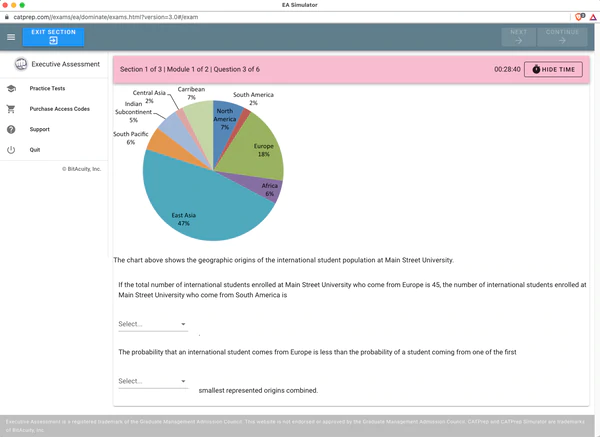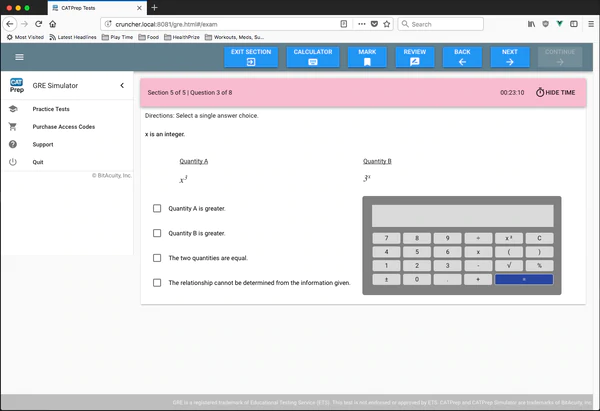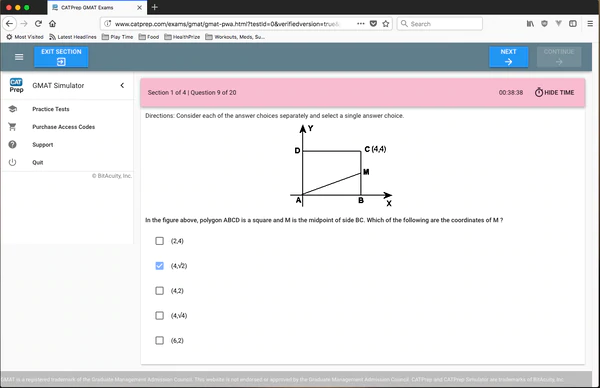It was in March of 1986 that the Chicago Sun-Times reported on the latest advance in placement exams, reporting that the "standardized testing of college-level skills recently began its long-awaited shift into the realm of computers." The new, improved approach was developed by the Educational Testing Service, along with the College Board, and was named the "Computer Adaptive Test" (CAT). Its first application was in college placement exams, testing incoming freshmen for competency in mathematics, reading and writing.
The story went on to explain that the CAT differed from the "traditional paper and pencil" placement tests, as the "new test adjusts the difficulty level of the questions to the ability of each test taker." The test structure and design is applicable to just about any subject area, and in the years since its introduction the CAT has been adapted for use in university graduate programs, government and business.
A little history
The U.S. armed service branches were unsuccessful in their early attempts to develop "adaptive tests" using large, unwieldy, expensive and slow mainframe computers. The 1980s brought previously unimaginable power to the personal (micro) computer, and reality finally caught up with theory when the College Board unveiled its CAT Graduate Record Examination (GRE) in the latter part of the decade.
CAT is now accepted as a viable, cost-effective alternative to traditional testing. Software development firms around the world have created "templates" and "shells" with which test-givers can build unique exams without doing R&D on their own. More and more companies will be partnering with government agencies and educational institutions, both private and public, to create customized CATs for placement, grading and licensure purposes. This has opened the door for other entrepreneurs to help people prepare for CATs, and online CAT preparation is a definite growth industry.
Benefits to the test-taker
Because CAT is an entirely new testing approach, one of the most important things online CAT preparation can do is familiarize test-takers with it. One immediate benefit to test-takers is learning to recognize how the exam is tailoring itself to their personal ability levels. If, for instance, test-takers do well on an item of moderate difficulty, they will be presented next with one that is somewhat more difficult. On the other hand, if they did poorly on a question, they would get a simpler one next. This sense of "tailoring" explains why a common nickname for CAT is "tailored testing."
Its proponents claim that CAT requires fewer test items to yield scores as accurate as old-fashioned tests. The data seem to back up this claim, and yet it is also unarguable that knowing how a test is designed, administered and graded confers a definite advantage on the test-taker. Online study and preparation, because of its efficiency and flexibility, is the perfect means to learn about CAT, and is another great benefit for busy students and professionals with no time to waste.
Who needs it?
Many graduate school programs use the GRE CAT in the application process, but medical, business and law schools normally do not require it. These schools instead use the MCAT, GMAT and LSAT, respectively. Clearly, CAT preparation can help you perform your best on the GRE test, just as it can help with the Graduate Management Admission Test (GMAT) that's a requirement for admission to most business schools. Further, a growing number of graduate finance and economics programs are using the GMAT during their evaluation processes.
For students and working professionals facing these hurdles, online CAT preparation is a powerful advantage. Since adaptive tests are known to provide quite accurate (and uniform) scores for test-takers, a well-designed and up-to-date preparation regimen can give test-takers a preview of how their test should turn out. Standard, "fixed" and inflexible tests, on the other hand, typically yield the most precise scores for test-takers of average ability and are much less accurate for both high- and low-achievers. Online CAT preparation can give you the confidence you need to succeed.
Other benefits
Adaptive tests can be as much as 50% shorter than "fixed" ones, with an equivalent or higher level of precision, too. This is of quite practical benefit to the well-prepared test-taker, as it can save them real, measurable time. Also, the prepared CAT test-takers know not to waste time on items that are too difficult or that are too easy. Knowing how the tests are administered and scored is a big benefit obtained by those who use online CAT preparation.
Testing organizations may, in fact, realize an economic benefit from the aforementioned time savings, as the amount and cost of test-taker "seat time" is markedly reduced. Because they are well prepared and know how the test is designed, well-prepared test-takers also benefit from the reduction of stress. In fact, the benefits to online CAT preparation are numerous, from the practical and pragmatic to the psychological and emotional.
With CAT now out of the bag and being used everywhere, it is no longer enough to know the subject matter of a test. It is now essential to know just how the test should be taken, and that's what online CAT preparation is all about.


